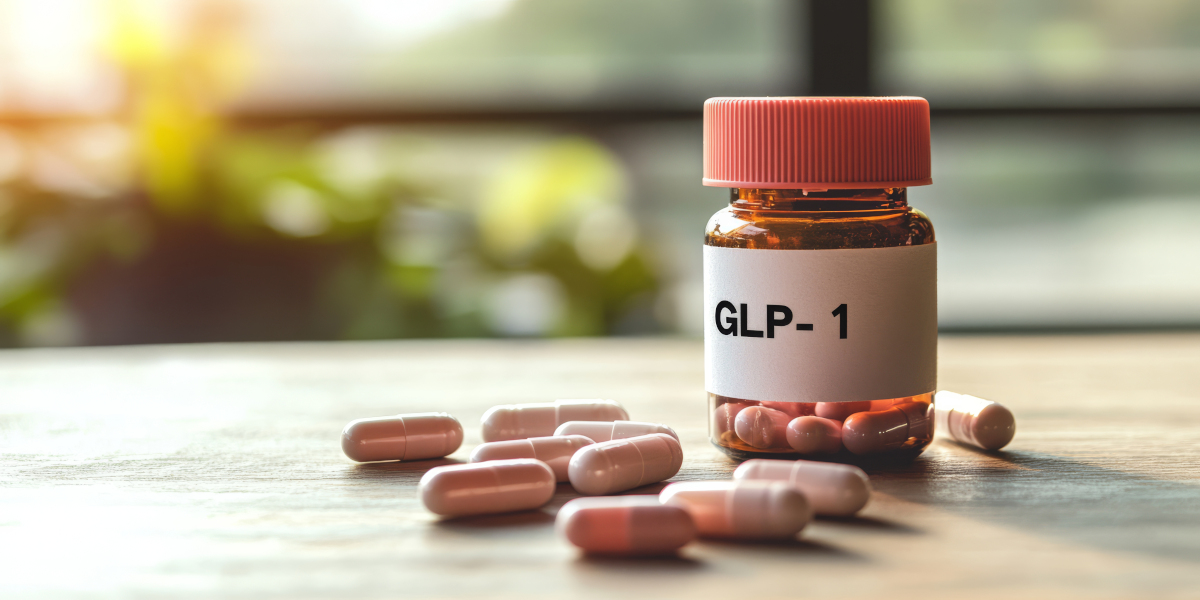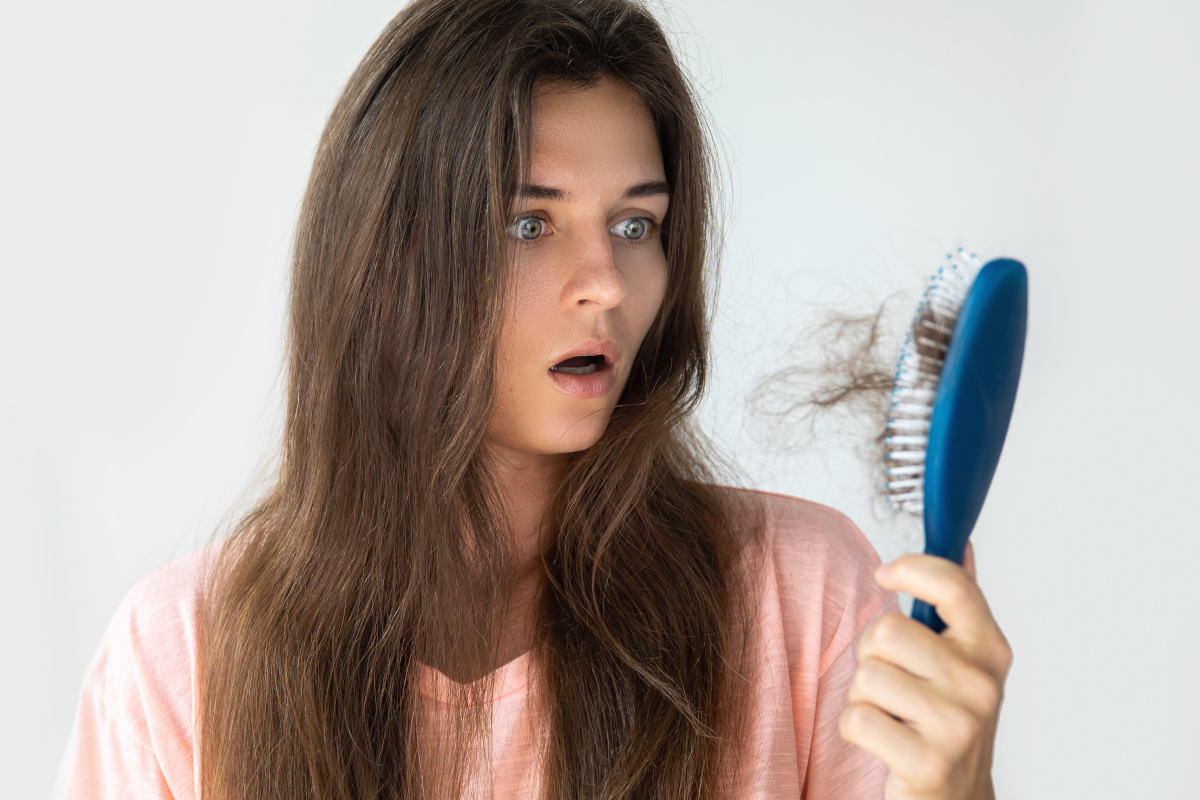Many patients have noticed thinning hair while taking a GLP-1 for weight loss medication, but do GLP1s cause hair loss?

GLP-1s have taken the world by storm with the promise of quick reliable weight loss. There are some side effects, so it should only be taken with close medical supervision. Sudden weight loss has also been associated with hair loss.
Losing Weight and Losing Hair
There is no direct evidence that GLP1s are toxic to hair follicles; however, this class of medications can cause rapid weight loss, which can cause telogen effluvium (TE). TE is not male pattern hair loss, in fact there is no pattern to it. TE is global. It affects the entire scalp.
How to Recognize Telogen Effluvium (TE)
Normally 5-10% of our hair follicles are resting (in telogen). These are the follicles which shed, and at 5-10% we usually do not notice. In TE, defuse shedding occurs as a result of a much larger percentage of hair follicles go to sleep. Typically this occurs a few months after a trigger.
Telogen Effluvium from GLP-1s typically occurs two to three months after starting, or significantly increasing, the dose of the medication. You may notice more hair in the shower or on your brush. The loss is diffuse, and not in spots or a pattern like along the anterior hairline or the vertex of the scalp.
How to Treat Hair Loss
Prevention is the best medicine. TE is triggered by rapid weight loss. The best way to prevent it is to use a low-and-slow approach to weight loss. This allows your body to adapt, and decrease the metabolic stress these drugs may cause.
If you think you have hair shedding from your GLP-1, the first step is to schedule an appointment with a Board Certified Dermatologist to rule out other causes. Prevention of hair loss in general includes attention to your nutrition:
- Avoid aggressive calorie restrictions
- Maintain adequate protein intake
- Attention to vitamins and minerals: Vitamin D, B-12 Iron and Zinc
- Scalp massages
- Topical Minoxidil (available over-the-counter)
- Medical grade laser caps (requires frequent use and results vary)
- Prescription Meds: Oral Minoxidil (though this can increase body hair)
How NOT to Treat Hair Loss

Hair loss associated with weight loss affects the entire scalp. The good news is it is usually temporary, but recovery can take nine months.
Biotin sold as a hair growth helper, has shown no benefit for TE. It can interfere with labs results used to rule out other causes of hair loss.
Scalp Exfoliation is also promoted as a hair growth promoter. Over exfoliation can cause inflammation and breakage, leading to thinner hair.
Heavy Scalp Moisturizers, like coconut and castor oil, can obstruct the hair follicles and worsen seborrhea. Light oils, jojoba and argan, can be used for massage before washing your hair.
Does GLP1 Hair Loss Stop?
Even for those on long-term GLP1 use, the shedding does usually subside. It is thought that the shedding is due to the stress of starting the meds, rather than the medications themselves, causes the TE.
Recovery after hair loss is normally six months, but it may be nine months before the hair density returns to normal. If you are still shedding after a year, it’s time to revisit the dermatologist and recheck your thyroid and hormones.
Post Weight Loss Plastic Surgery Consultations
I normally get involved after weight loss with a wide range of Post-Bariatric Plastic Surgery procedures to tighten the skin. Additional information is available here on the San Francisco Plastic Surgery Blog and my main website DrMele.com. While it is advisable to wait for one year after massive weight loss before having any elective surgery, it is never too early to have a consultation. Consultations give you more time to consider your options, and for your plastic surgeon to plan your procedure(s).
In the San Francisco Bay Area, call (925) 943-6353, and schedule a private consultation appointment in our Walnut Creek Plastic Surgery Clinic. There is no substitute for an in-person consultation when it comes to skin laxity. And there is no substitute for an experienced, board certified plastic surgeon, dedicated to Post Bariatric Plastic Surgery.
Previous Post Next Post